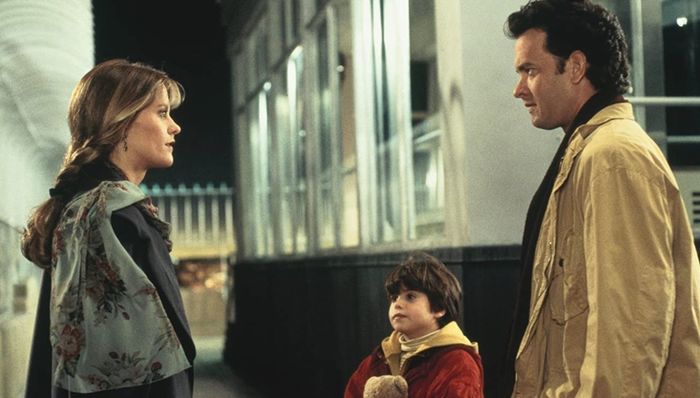Fever Pitch: Love, Obsessions and Baseball
Minsung Son stands up for the Farrelly brothers’ 2005 rom-com about a baseball fanatic and a workaholic, arguing that rather than being an obstacle for love, our passions make us endearing.
From the blossoming flowers to the weather perfect for romantic walks outside, there are plenty of reasons why spring gets its reputation as “the season of love” — every year, hopes of starting a new relationship are rekindled in many. However, for Ben Wrightman (Jimmy Fallon), a 30-year-old Boston schoolteacher, there is only one thing about spring that sparks love: the start of a new baseball season. Every March, he falls back in love with Major League Baseball team the Boston Red Sox, of which he is a lifelong fan — but not just any fan. He is an obsessive, die-hard, must-watch-every-game supporter who sleeps wrapped in a Red Sox duvet.
If Ben’s love is the Red Sox, that of Lindsey Meeks (Drew Barrymore), a businesswoman working for a successful consulting firm, is her work. This workaholic can’t even find the time for lunch (she asks her secretary to toss a sandwich into her mouth), or for anything that might stand between her and a newly opened up promotion opportunity.
“The film ultimately circles back to an age-old motif: how does one balance love with work, passion, or self?”
Fever Pitch, a 2005 romantic comedy by the Farrelly brothers, is the story of Ben and Lindsey, and the unlikely love between these obsessed individuals. In what certainly is an unusual backdrop for a romance, both characters are already in passionate love (albeit with non-human entities), are content with their respective lives, and seem to feel no “inner emptiness” that a significant other would go on to fill (compare that with Sleepless in Seattle or Her). That their loves are directed at things that couldn’t be further away — a baseball team and a dog-eat-dog corporate world — make it even harder to imagine anything romantic happening between them.
Nonetheless, Ben grows on Lindsey, and so do the Red Sox. Lindsey goes to their games with Ben as the two begin a relationship, and she is intrigued by the once-distant world of baseball. Ben’s fervent love of the team, however, eventually becomes a major source of conflict between the two. That Lindsey, swamped in work, can no longer find the time to attend the games, doesn’t help. Throughout the film, the initial atypicality of the characters and plot ultimately circles back to an age-old motif so typically explored in countless romance movies and TV series: how does one balance love with work, passion, or self?
Of course, the film doesn’t offer a clear-cut answer to the conundrum. It does, however, maintain a relatively sympathetic attitude towards the passions of Ben and Lindsey. Lindsey’s professional side is what initiates Ben’s love for her, and the Red Sox games are what in turn brings her closer to him. Rather than treating the Red Sox fanboy in Ben or the workaholic in Lindsey as pathetic obstacles to romance that must be “balanced” with love, the film seems to acknowledge that, although excessive at times, these idiosyncratic obsessions might even be a good thing in a romantic relationship.
“Obsessions, quirks, and passions are what make a person lovable. Having something that they love passionately gives people chances to share those passions with a loved one.”
I would agree. Obsessions, quirks, and passions are what make a person different, interesting, and lovable. Having something that they love passionately gives people chances to share those passions with a loved one, becoming even closer to one another. This creates healthier relationships, in which people retain their unique selves and personal identities while also being a part of a romantic union. An exploration of such an interesting idea, albeit through a familiar idiom of unfolding romantic comedies, is what makes Fever Pitch slightly different from other films of its genre.
As much as being a film about obsessions in love, Fever Pitch is also a love letter to baseball. The Red Sox are always there for Ben and Lindsey, exciting and disappointing them both throughout the baseball season and throughout their relationship. Although Ben insists that he loves baseball because it isn’t “as confusing or ambiguous as life,” the close resemblance of baseball to the relationship in the film — full of ups and downs, errors, and home runs — seems to attest that the beauty of the game lies in the fact that it is after all “life played out on the field,” as singer-songwriter (and, coincidentally, a real-life Red Sox fan) Juliana Hatfield put it. In this sense, while the film is perfectly accessible to an audience without the knowledge of baseball or of the Red Sox, understanding that the film is set throughout the 2004 Major League season, when the Red Sox famously ended their 86-year championship drought with a dramatic and unprecedented 4–3 comeback on their arch-rivals New York Yankees, will certainly help one to understand that unlikely yet miraculous aspect of the love story between Ben and Lindsey.
 News / Uni Scout and Guide Club affirms trans inclusion 12 December 2025
News / Uni Scout and Guide Club affirms trans inclusion 12 December 2025 News / Cambridge Vet School gets lifeline year to stay accredited28 November 2025
News / Cambridge Vet School gets lifeline year to stay accredited28 November 2025 Science / Did your ex trip on King’s Parade? The science behind the ‘ick’12 December 2025
Science / Did your ex trip on King’s Parade? The science behind the ‘ick’12 December 2025 News / Cambridge study finds students learn better with notes than AI13 December 2025
News / Cambridge study finds students learn better with notes than AI13 December 2025 News / Pembroke to convert listed office building into accom9 December 2025
News / Pembroke to convert listed office building into accom9 December 2025








